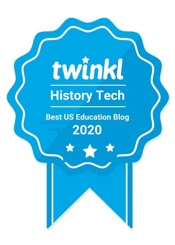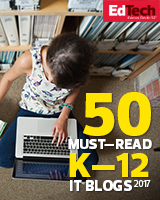Okay . . . so I’m guessing you’ve heard about how AI robots are going to take over the world, ruin education, and steal your dog. I’m not entirely sure about the taking over the world and stealing your dog part but pretty sure ChatGPT is not going to ruin education.
And, yes, I’ve been wrong before. So the ruined education piece could happen, I suppose. But I’m pretty sure that an artificial intelligence chatbot like ChatGPT isn’t going to be the thing that does it. And I’m starting to believe that it might actually help us do our jobs better.
For those of you just catching up, ChatGPT is a piece of software that rolled out last fall that mimics the thinking and writing of people like you and me. The concern is that students will use this piece of software to create products in response to classroom assignments and submit those products as their own work. Could this happen? Absolutely. Has this sort of thing been going on for years? Absolutely.
Back in the day, pre-internet, students could and did order entire catalogs that listed hundreds of pre-written history papers available in a variety of lengths and quality. Post internet? Those catalogs and essays simply went online. And now? AI is simply the next step in the decades-old Cold War between student and teacher.
Some of you haven’t been around long enough to remember the heated discussions and hand-wringing that happened in the math world when pocket calculators became readily available. The current conversation around ChatGPT ruining the educational process has a similar feel to it.
And I get it. We want the actual kid, not a chatbot, to prove what they know and are able to do. But I’m convinced that social studies teachers can and should find ways to incorporate AI into their classrooms.
So. What can that look that look like in practice?
Read more




















